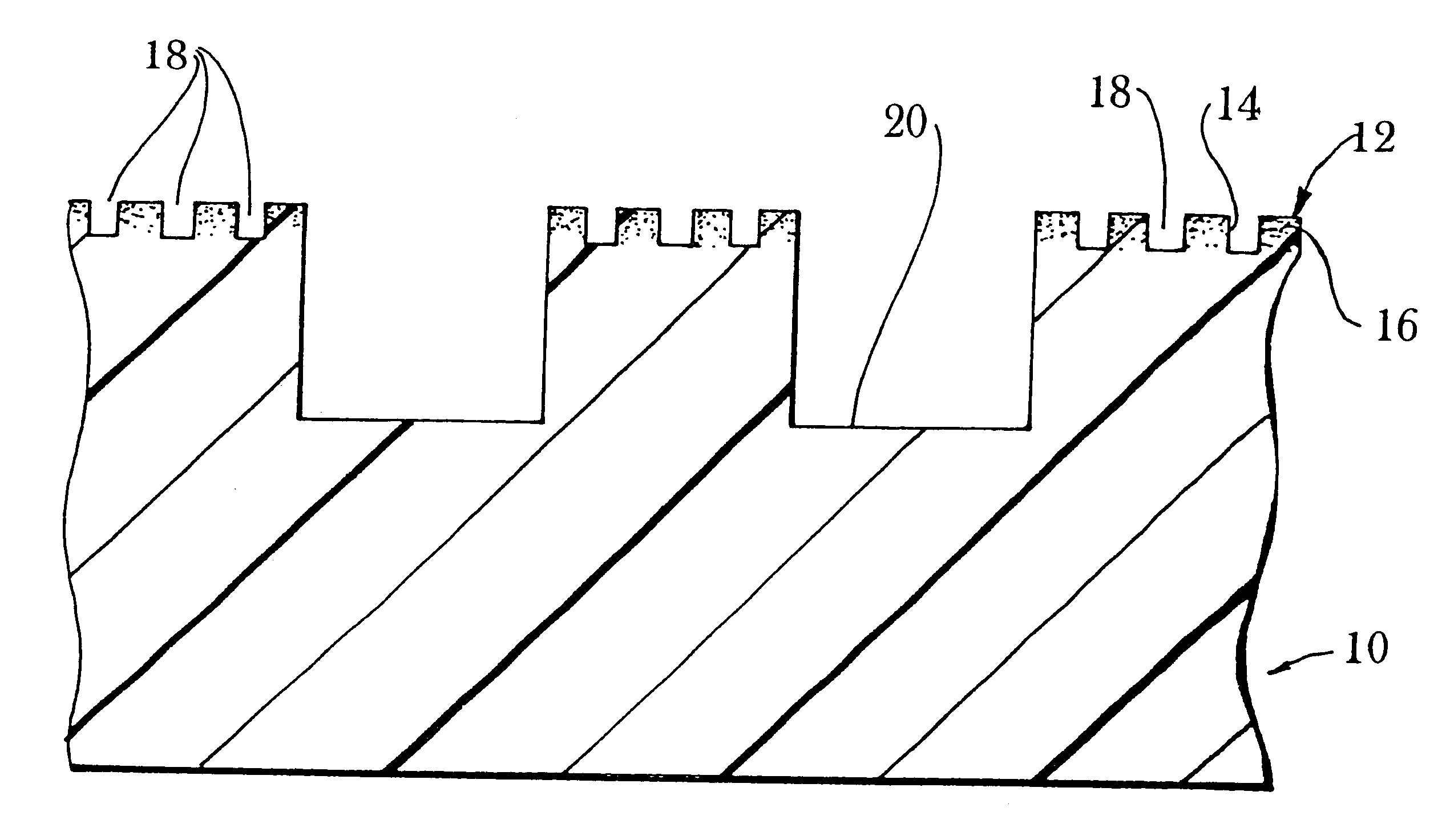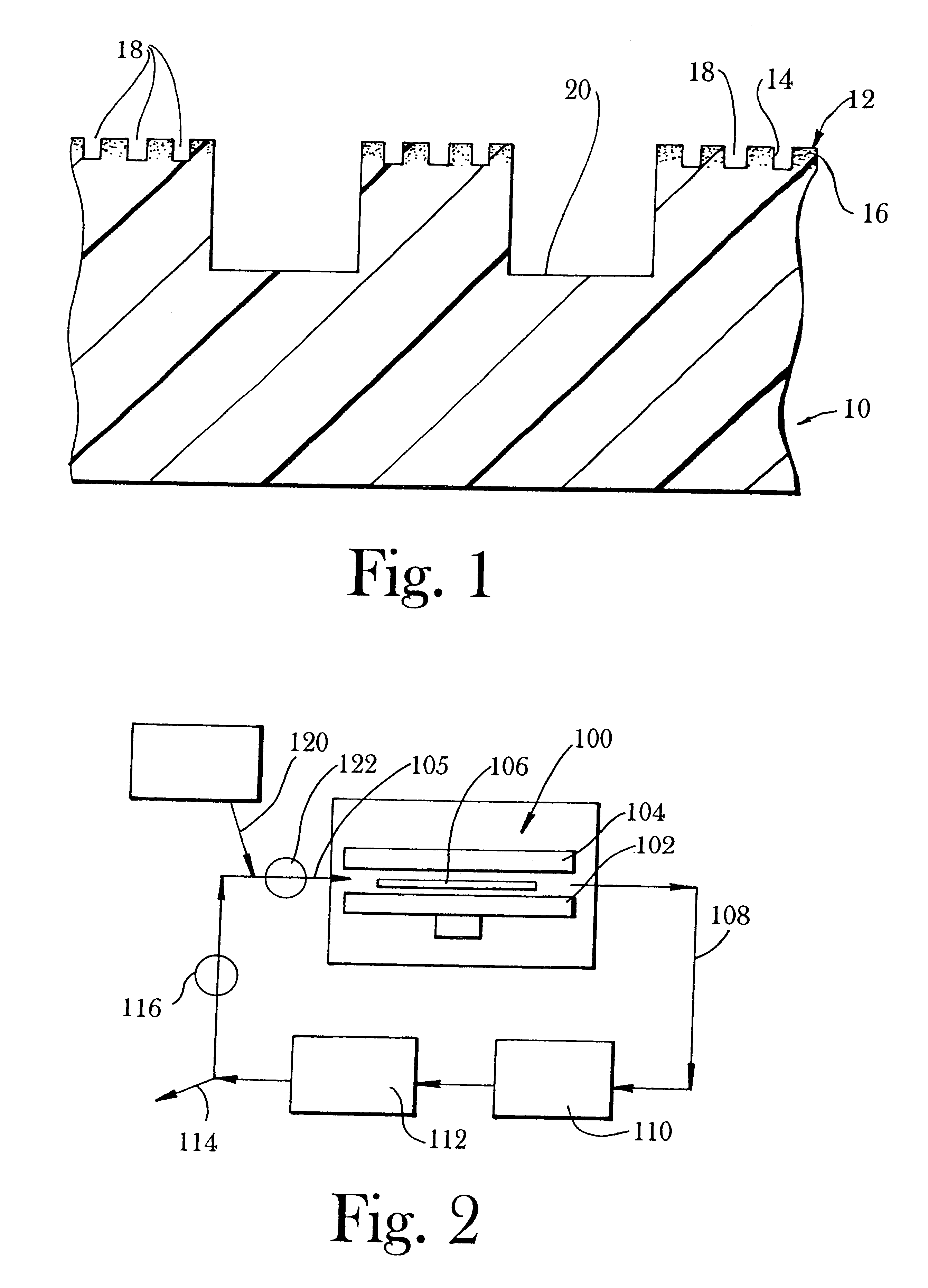Polishing system having a multi-phase polishing substrate and methods relating thereto
a technology of polishing substrate and polishing system, which is applied in the direction of grinding heads, grinding machines, instruments, etc., can solve the problems of reducing affecting the polishing efficiency and performance, and requiring extensive cleaning of substrate and polishing equipmen
- Summary
- Abstract
- Description
- Claims
- Application Information
AI Technical Summary
Benefits of technology
Problems solved by technology
Method used
Image
Examples
example 1
This example describes one embodiment of particle cluster fabrication according to the present invention. A formulation was prepared having 5 weight percent A-100* and 95 weight percent CeO.sub.2 **. A 1935 g CeO.sub.2 aqueous dispersion (the concentration of CeO.sub.2 in the dispersion was 21.5%) was prepared and poured into a mixer. Using high shear mixing, 63 g of an aqueous dispersion of A-100 (concentration of 55%) was slowly added to the CeO.sub.2 dispersion. Mixing continued for 30 min. The resulting mixture was poured into an aluminum pan and heated for fourteen hours at 60.degree. C. until dried The dried mixture was ground by mortar and pestle to a fine powder. Each grain of powder represented a particle cluster.
*A-100--a water based colloidal dispersion of urethane and polyacrylate copolymer manufactured by Witco, Inc.
**CeO.sub.2 --water dispersion with a primary particle size of 200 nm, manufactured by Mitsui Chemical Company.
example 2
This example describes a dispersion of particle clusters in an inter-cluster polymer.
Three-hundred grams of a W-242 aqueous dispersion, 157.5 g of particle clusters produced as in Example 1, 6.0 g of XW, 9.0 g of surfactant and 100 g deionized water were mixed in a laboratory jar-mill (with zirconia as a ball-mill medium) for fourteen hours. A spray-gun was used to spray the mixture on the surface of a grooved IC-1400 pad (polishing pad manufactured by Rodel, Inc., Newark, Del.). After spraying, the pad was heated in an oven at 60.degree. C. for fourteen hours.
example 3
This example describes one embodiment for a method of polishing. Thermal oxide wafers were polished using a polishing pad prepared in Example 2. The pad was mounted on a Strasbaugh 6CA polishing machine platen. The pad was rinsed with de-ionized water and conditioned with 200 grit diamond grid for 3 min. A particle-free polishing slurry (NH.sub.4 OH (1.7%) in water) was introduced on the surface of the pad at a rate of 100 ml / min. A platen speed of 60rpm and a quill speed of 50 rpm were used. The pressure between the pad and the wafer was 8 psi. The wafer was polishing for 2 min. then rinsed with de-ionized water for 30 seconds. Seventy-five thermal oxide wafers were polished with one pad. There was no reconditioning between wafers. An average removal rate of 3000-3500 .ANG. / min was achieved.
Pad Plus Slurry.
The polishing systems of the present invention comprise the (above described) polishing pad design in combination with a polishing slurry. Any particle containing polishing fluid...
PUM
 Login to View More
Login to View More Abstract
Description
Claims
Application Information
 Login to View More
Login to View More - R&D
- Intellectual Property
- Life Sciences
- Materials
- Tech Scout
- Unparalleled Data Quality
- Higher Quality Content
- 60% Fewer Hallucinations
Browse by: Latest US Patents, China's latest patents, Technical Efficacy Thesaurus, Application Domain, Technology Topic, Popular Technical Reports.
© 2025 PatSnap. All rights reserved.Legal|Privacy policy|Modern Slavery Act Transparency Statement|Sitemap|About US| Contact US: help@patsnap.com


